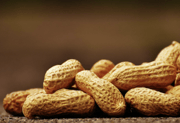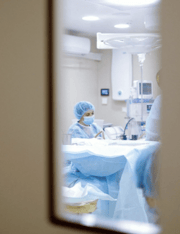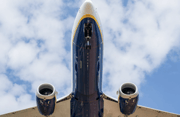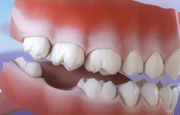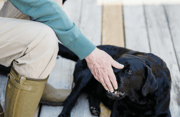Popular weekend activity linked to higher risk of serious health issues, study finds
- Replies 0
Some habits can feel entirely harmless, offering what seems like nothing more than a simple and familiar way to unwind, decompress, and recharge as the week finally draws to a close.
Yet scientists now warn that certain weekend choices could be making a common and dangerous sleep disorder significantly worse.
Data shows a clear spike in severity outside of workdays, raising fresh questions about how it’s diagnosed and treated.
Experts, however, warn that the latest research surrounding these routines points to outcomes that could carry life-or-death consequences for millions of people, underscoring just how easily something seemingly small can ripple into something far more serious.
Researchers have coined the term “social apnoea” to describe the weekend worsening of obstructive sleep apnoea, a condition that causes repeated pauses in breathing during rest.
It affects up to 30 million Americans and between eight and ten million people in the UK, and is already known to raise the risk of heart disease, type 2 diabetes, depression, dementia and deadly lung cancer.
An international team led by Flinders University in Australia studied over 70,000 people and found participants were 18% more likely to have moderate to severe apnoea on Saturdays than on Wednesdays.
The impact was even greater in men at 21% compared to women at 9%, and in under-60s at 24% compared to just 7% for over-60s.
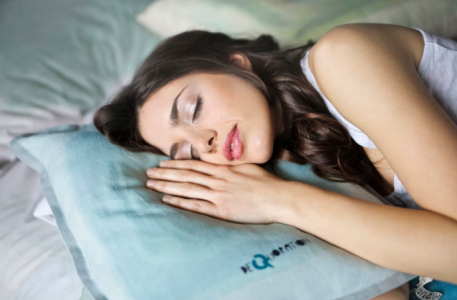
The study also showed that sleeping in for 45 minutes or more at the weekend increased the odds of worse symptoms by 47%.
Shifting sleep schedules by more than an hour, which researchers call “social jetlag,” raised severity by 38%. The team believes factors like alcohol use, lighter sleep and skipping prescribed therapies such as CPAP machines may be making the condition worse.
“Most clinical testing is done on a weeknight, missing the weekend effect we’re now calling social apnoea,” said lead author Dr Lucia Pinilla from the Adelaide Institute for Sleep Health at Flinders.
A second study by the same group found that the severity of the disorder also changes with the seasons.
Also read: These everyday habits seem harmless—but experts say they can be surprisingly dangerous
In the northern hemisphere, the apnoea-hypopnoea index—a measure of breathing interruptions—was up to 19% higher in summer and winter than in spring and autumn.
In the southern hemisphere, the increase was 10 to 15% in summer compared to spring. Researchers believe higher nighttime temperatures, longer winter mornings, weight changes and seasonal illnesses all contribute to these seasonal spikes.
Even what might appear to be relatively small or barely noticeable fluctuations in the severity of a condition, trend, or event could, according to experts, have wide-reaching and potentially serious implications for public health on a scale that is difficult to fully grasp.
Untreated apnoea not only disrupts rest and causes extreme daytime sleepiness, it can also raise the risk of cardiovascular events, mental health issues and accidents.
Also read: Could your sleep habits affect your Alzheimer’s risk? What experts want you to know
Skipping CPAP therapy on weekends, a long-standing practice for some patients, could be making the problem worse.
The researchers say diagnosis and treatment plans should account for both weekend and seasonal variations.
Read next: Unusual breathing method shows surprising health benefits, study finds

Have you noticed your sleep getting worse on weekends or during certain seasons? Doctors recommend tracking symptoms, sticking to a regular sleep schedule and using any prescribed therapy every night without exception. Share your experiences in the comments—your insight could help others recognise the signs and take action.
Yet scientists now warn that certain weekend choices could be making a common and dangerous sleep disorder significantly worse.
Data shows a clear spike in severity outside of workdays, raising fresh questions about how it’s diagnosed and treated.
Experts, however, warn that the latest research surrounding these routines points to outcomes that could carry life-or-death consequences for millions of people, underscoring just how easily something seemingly small can ripple into something far more serious.
Researchers have coined the term “social apnoea” to describe the weekend worsening of obstructive sleep apnoea, a condition that causes repeated pauses in breathing during rest.
It affects up to 30 million Americans and between eight and ten million people in the UK, and is already known to raise the risk of heart disease, type 2 diabetes, depression, dementia and deadly lung cancer.
An international team led by Flinders University in Australia studied over 70,000 people and found participants were 18% more likely to have moderate to severe apnoea on Saturdays than on Wednesdays.
The impact was even greater in men at 21% compared to women at 9%, and in under-60s at 24% compared to just 7% for over-60s.

Popular weekend activity linked to higher risk of serious health issues, study finds. Image source: bruce mars / Unsplash
The study also showed that sleeping in for 45 minutes or more at the weekend increased the odds of worse symptoms by 47%.
Shifting sleep schedules by more than an hour, which researchers call “social jetlag,” raised severity by 38%. The team believes factors like alcohol use, lighter sleep and skipping prescribed therapies such as CPAP machines may be making the condition worse.
“Most clinical testing is done on a weeknight, missing the weekend effect we’re now calling social apnoea,” said lead author Dr Lucia Pinilla from the Adelaide Institute for Sleep Health at Flinders.
A second study by the same group found that the severity of the disorder also changes with the seasons.
Also read: These everyday habits seem harmless—but experts say they can be surprisingly dangerous
In the northern hemisphere, the apnoea-hypopnoea index—a measure of breathing interruptions—was up to 19% higher in summer and winter than in spring and autumn.
In the southern hemisphere, the increase was 10 to 15% in summer compared to spring. Researchers believe higher nighttime temperatures, longer winter mornings, weight changes and seasonal illnesses all contribute to these seasonal spikes.
Even what might appear to be relatively small or barely noticeable fluctuations in the severity of a condition, trend, or event could, according to experts, have wide-reaching and potentially serious implications for public health on a scale that is difficult to fully grasp.
Untreated apnoea not only disrupts rest and causes extreme daytime sleepiness, it can also raise the risk of cardiovascular events, mental health issues and accidents.
Also read: Could your sleep habits affect your Alzheimer’s risk? What experts want you to know
Skipping CPAP therapy on weekends, a long-standing practice for some patients, could be making the problem worse.
The researchers say diagnosis and treatment plans should account for both weekend and seasonal variations.
Read next: Unusual breathing method shows surprising health benefits, study finds
Key Takeaways
- Some habits feel harmless—just a way to relax and recharge when the week is over. Yet scientists now warn that certain weekend choices could be making a common and dangerous sleep disorder significantly worse.
- Researchers have coined the term “social apnoea” to describe the weekend worsening of obstructive sleep apnoea, a condition that causes repeated pauses in breathing during rest.
- An international team led by Flinders University in Australia studied over 70,000 people and found participants were 18% more likely to have moderate to severe apnoea on Saturdays than on Wednesdays.
- The study also showed that sleeping in for 45 minutes or more at the weekend increased the odds of worse symptoms by 47%, while shifting sleep schedules by more than an hour raised severity by 38%.


